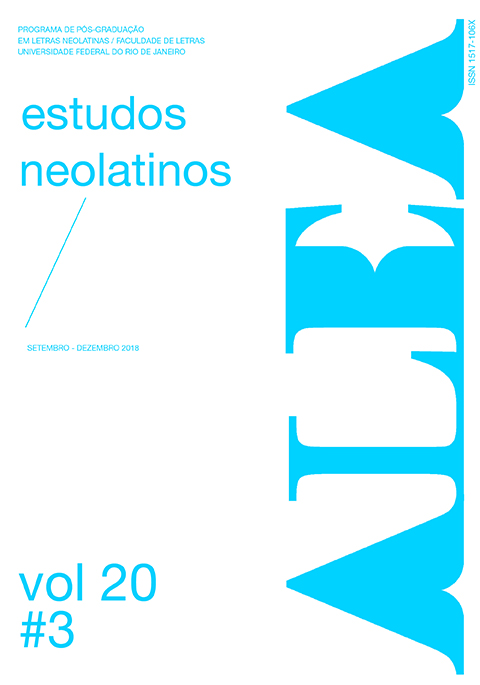Tendências distópicas no Brasil: a fantasia como possibilidade de lidar com o pesadelo na literatura nacional
DOI:
https://doi.org/10.1590/1517-106X/203223238Abstract
O presente artigo busca discutir as especificidades da distopia brasileira, questionando acerca das singularidades na formação de sociedades atrozes e do uso do elemento fantástico para a elaboração e o desenlace destas narrativas em âmbito nacional. Para tal, este trabalho analisa os romances Dorri (2009), de Rafael Silva; Supernova: O encantador de flechas (2015), de Renan Carvalho; e Sombras de Reis Barbudos (1972), de José J. Veiga. Na análise, utiliza-se das contribuições de Causo (2003), Marks de Marques (2014), Matangrano (2013; 2014) e Suvin (1972). Este estudo justifica-se por contribuir com as pesquisas acerca da literatura nacional e acerca do gênero distopia, as quais têm se destacado nas últimas décadas e têm tornado disponíveis novas ferramentas para a (re)leitura de tais textos.References
BOOKER, M. Keith. Dystopian Literature: A Theory and Research Guide. Westport: Greenwood, 1994.
CARVALHO, Renan. Supernova: O encantador de flechas. 2.ed. Ribeirão Preto: Novo Conceito Editora LPL, 2015.
CAUSO, Roberto da Silva. Ficção científica, fantasia e horror no Brasil: 1875 a 1950. Belo Horizonte: UFMG, 2003.
CLAEYS, Gregory. The Origins of Dystopia: Wells, Huxley and Orwell. In: CLAEYS, Gregory. (ed.). The Cambridge Companion to Utopian Literature. Cambridge: Cambridge University Press, 2010.
DARWIN, Charles. A origem das espécies através da selecção natural, ou a preservação das raças favorecidas na luta pela sobrevivência. Tradução de: Ana Afonso. Leça da Palmeira: Planeta vivo, 2009 [1859].
FERNS, Chris. Narrating Utopia: Ideology, Gender, Form in Utopian Literature. Liverpool: Liverpool University Press, 1999.
FLORES, Angel. Magical Realism in Spanish American Fiction. In: ZAMORA, Lois Parker; FARIS, Wendy B. Magical Realism: Theory, History, Community. Durham: Duke University P, 1995.
ROBERTS, Adam. Science fiction: The new critical idiom. London: Routledge, 2002.
MATANGRANO, Bruno Anselmi. O Fantástico no Brasil: As Origens. Revista Bang! – A sua revista de fantasia. Rio de Janeiro, v. FC e horror, n. 0, 2013, p. 49-55.
MATANGRANO, Bruno Anselmi. O Fantástico no Brasil – Parte II: A Consolidação do Gênero. Revista Bang! Brasil – A sua revista de Fantasia. Rio de Janeiro, v. FC e Horror, n. 1, 2014, p. 49-56.
MARKS DE MARQUES, Eduardo. Da centralidade política à centralidade do corpo transumano: movimentos da terceira virada distópica na literatura. Anuário de Literatura , Florianópolis, v. 19, n. 1, p. 10-29, 2014.
SILVA, Rafael. Dorri. 2.ed. São Paulo: Chiado, 2015 [2009].
SUVIN, Darko. On the Poetics of the Science Fiction Genre. National Council of Teachers of English Stable, Urbana, v. 34, n. 3, 1972, p. 372-382.
TODOROV, Tzvetan. Introdução à literatura fantástica. Tradução de Maria Clara Correa Castello. 4 ed. Manaus: Editora Perspectiva, 2012.
TOLKIEN, J.R.R. Sobre histórias de Fadas. Tradução de Ronald Eduard Kyrmse. São Paulo: Conrad, 2006.
VEIGA, José J. Sombras de reis barbudos. São Paulo: DIFEL, 1983 [1972].
WEGNER, Philip E. Imaginary Communities: Utopia, the Nation, and the Spatial Histories of Modernity. University of California Press: London, 2002.
Downloads
Published
Issue
Section
License
THE AUTHOR/S confirm/s his, her or their participation in all stages of work preparation: 1) Conception, project, bibliographical research, analysis and interpretation of data; 2) Writing and reviewing the manuscript; 3) Approval of the final version of the manuscript for publication; 4) Responsibility for all aspects of the work and guarantee for the accuracy and integrity of any part of the work. The submission of works implies the immediate cession, without onus, by all authors, of publication rights to the journal Alea, licensed under CC BY (https://creativecommons.org/licenses/by/4.0/). The authors are fully responsible for the content of the article and continue to hold all copyrights for subsequent publications of it, and should, if possible, include the reference to the first publication in the journal. Alea does not commit to returning received contributions. Authors of articles, reviews or translations will receive a copy of the journal.

